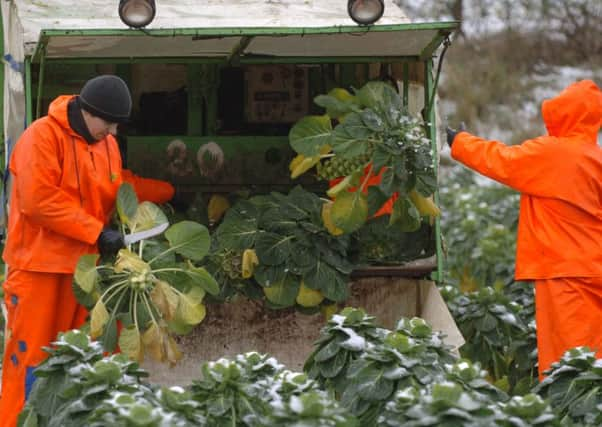Brexit points way to big changes for farm labour
This article contains affiliate links. We may earn a small commission on items purchased through this article, but that does not affect our editorial judgement.


With the UK agricultural, fisheries and forestry sectors currently highly reliant on immigrant labour – and showing returns in terms of output per man-hour which were both the lowest for any UK sector and well behind those being achieved on farms on the continent – real challenges lay ahead for the industry.
Outlining the reasons why the UK agricultural industry has increasingly drawn on EU migrant labour, the report looks at the effect any future restrictions on the free movement of people might have on labour availability.
Advertisement
Hide AdAdvertisement
Hide AdThe report’s author, AHDB head of strategic insight David Swales, pointed out that paid labour currently represents a significant proportion of the industry’s total cost of production at about 14 per cent of total financial inputs – or £2.5 billion in 2015.
He argued that, with the farming sector’s current low financial output per employee, the threat to availability of overseas labour could be mitigated at least in part by an increase in productivity through “innovation and skills development”.
“If there are restrictions in the availability of labour, the costs of employing staff are likely to rise, meaning investment in more capital-intensive production systems such as automation may become a more attractive option for growers and producers,” said Swales.
However, the report also indicated that there would be a risk in the short term that businesses could be exposed by labour shortages and become less competitive in the global marketplace.
